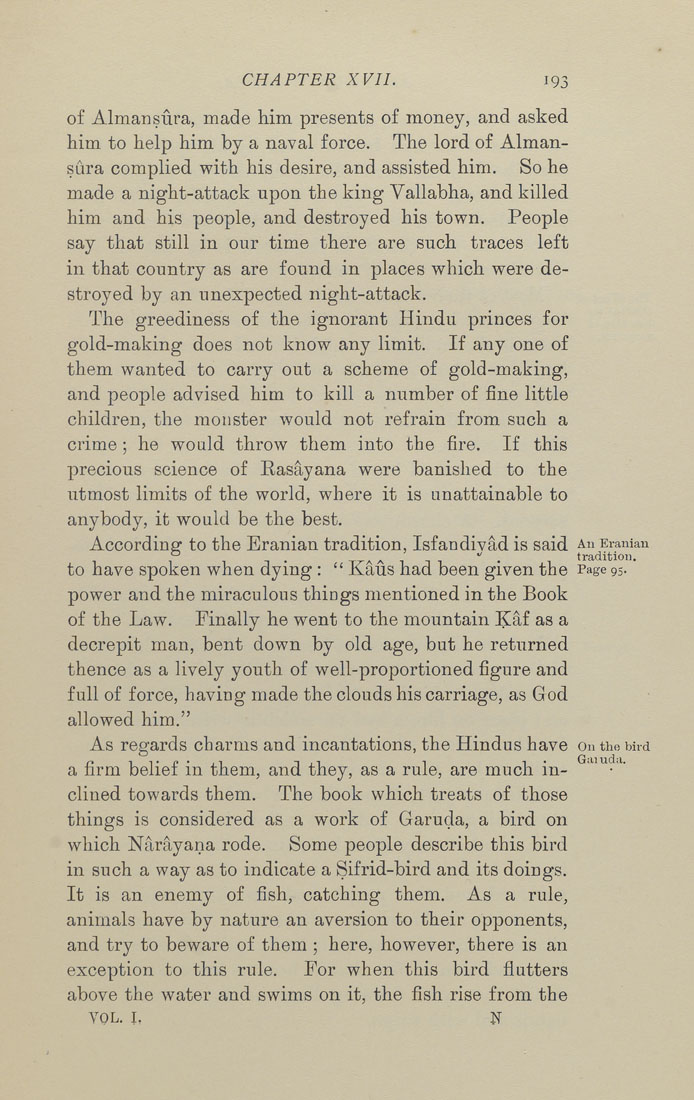Bīrūnī, Muḥammad ibn Aḥmad, Alberuni's India (v. 1)
(London : Kegan Paul, Trench, Trübner & Co., 1910.)
|
||
|
|
|
|
| Page 193 |

CHAPTER XVII. 193 of AlmansHra, made him presents of money, and asked him to help him by a naval force. The lord of Alman¬ sura complied with his desire, and assisted him. So he made a night-attack upon the king Vallabha, and killed him and his people, and destroyed his town. People say that still in our time there are such traces left in that country as are found in places which were de¬ stroyed by an unexpected night-attack. The greediness of the ignorant Hindu princes for gold-making does not know any limit. If any one of them wanted to carry out a scheme of gold-making, and people advised him to kill a number of fine little children, the monster would not refrain from such a crime; he would throw them into the fire. If this precious science of Rasayana were banished to the utmost limits of the world, where it is unattainable to anybody, it would be the best. According to the Eranian tradition, Isfandivad is said An Eranian , ^ " . tradition. to have spoken when dying : " Kaus had been given the Page 95- power and the miraculous things mentioned in the Book of the Law. Einally he went to the mountain Kaf as a decrepit man, bent down by old age, but he returned thence as a lively youth of well-proportioned figure and full of force, having made the clouds his carriage, as God allowed him." As regards charms and incantations, the Hindus have on the bird a firm belief in them, and they, as a rule, are much in- ' ■" clined towards them. The book which treats of those things is considered as a work of Garuda, a bird on which Narayana rode. Some people describe this bird in such a way as to indicate a Sifrid-bird and its doings. It is an enemy of fish, catching them. As a rule, animals have by nature an aversion to their opponents, and try to beware of them ; here, however, there is an exception to this rule. Eor when this bird flutters above the water and swims on it, the fish rise from the VOL. L N |
| Page 193 |







